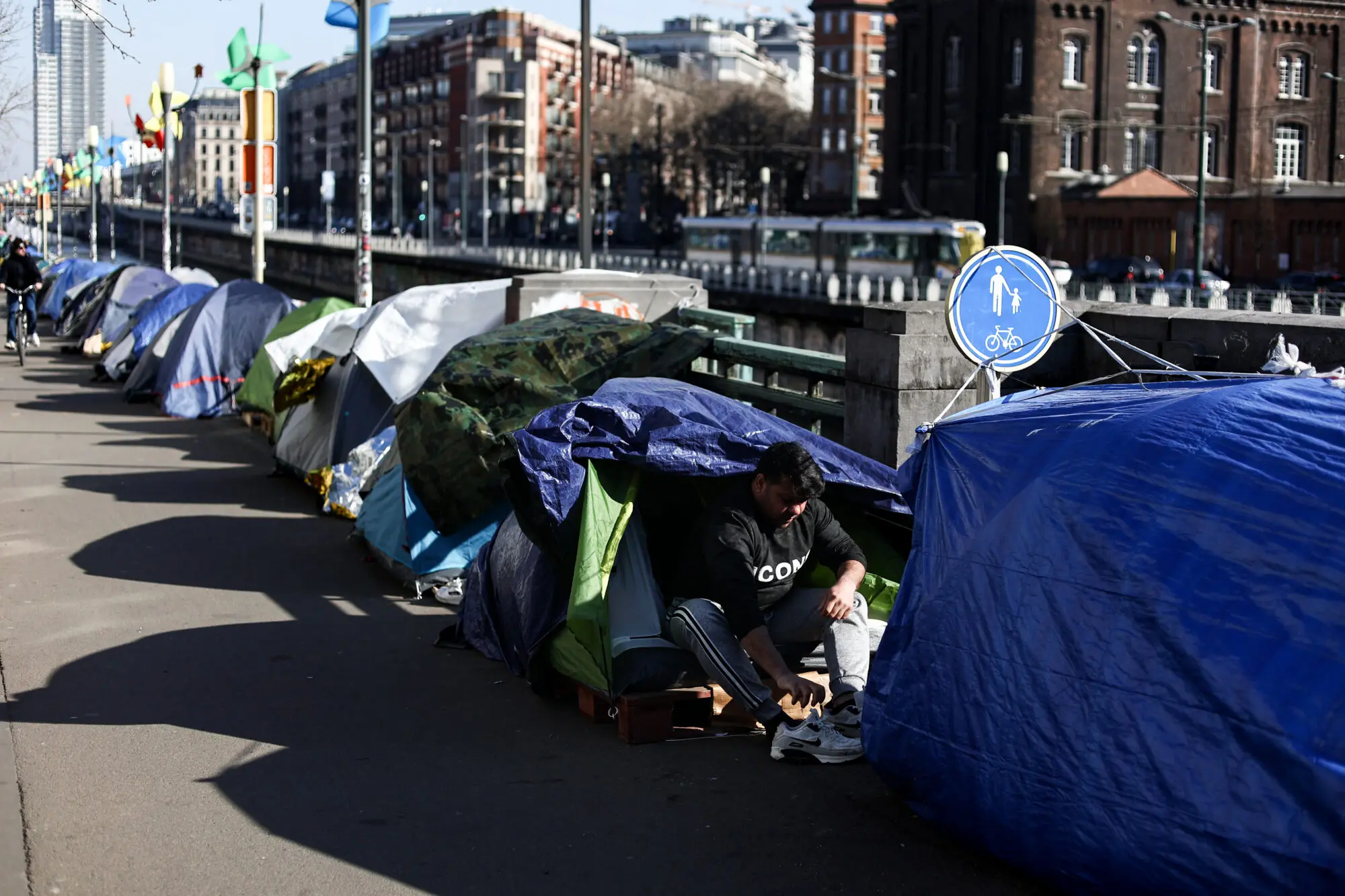
Makeshift refugee camp in Brussels, March 2023.
Hundreds of male asylum seekers are left stranded on Brussels’ streets after a ban on single men entering refugee shelters came into effect this week, despite several courts ruling against it. The move is seen as both inhumane and dangerous to public safety, The Brussels Times reported, as politicians warn the number of homeless refugees could increase exponentially.
It’s only been several days since the Belgian government announced the temporary ban on sheltering male refugees within the network of Fedasil—the agency responsible for the reception of asylum seekers in Belgium—but the effects can already be seen on the streets.
Nicole de Moor, the State Secretary for Migration, argued that the decision had to be made because of the unprecedented influx of refugees overloading the Belgian asylum system. She also highlighted that single men’s access to migrant shelters has already been restricted since October 2021, with women, minors, and families enjoying priority.
Regardless of the causes, the catch is that the decision was illegal since the ban had already been overruled by Brussels, Belgian, and even European courts numerous times. Besides, not only is the Belgian Federal Government ignoring the court rulings, but it keeps refusing to pay the penal fines it has accrued. NGOs are referring to it as the “death of the rule of law.”
“This latest decision is just totally illegal, on a national, international, and EU level. The problem is that, at this point, we are completely beyond legality in Belgium,” said Marie Doutrepont, a lawyer at Progressive Lawyers Network. She added:
We now have a minister announcing through the media that she will not respect the law for an undefined period of time. This is completely unseen.
What’s more, experts say that the measure will not have any meaningful effect, as Fedasil is quickly running out of space for families regardless. Furthermore, the ban will not deter any single men from coming to Belgium, feeding Brussels’ already rampant homelessness problem and fueling the city’s drug and crime epidemic, particularly around its train stations.
“This will have deleterious effects in Brussels in any case, and not just around the Midi Station. The Federal Government must assume its national and international responsibilities and obligations,” Brussels Environment Minister Alain Maron argued. He was joined in his criticism by Employment Minister Bernard Clerfayt, who said the government “is leaving thousands of migrants to wander the streets and railway stations of Brussels.”
Despite all the concerned voices, the Belgian government insists that the ban against men in asylum shelters is the only solution, and, shifting the blame to the EU, says there’s nothing to be done until the Migration Pact is finalized—although this argument is faulty, since the Migration Pact only helps frontline countries, and redistributes refugees to those further north (such as Belgium). Migration Secretary de Moor’s attitude is optimistic, nevertheless, pointing out that “countries like Germany are in worse shape.”
Just to illustrate how bad the Belgian asylum system really is at the moment, the Netherlands stopped sending back illegal migrants to its southern neighbor, as its laws prevent returns to EU countries “where there is no humane reception.”
